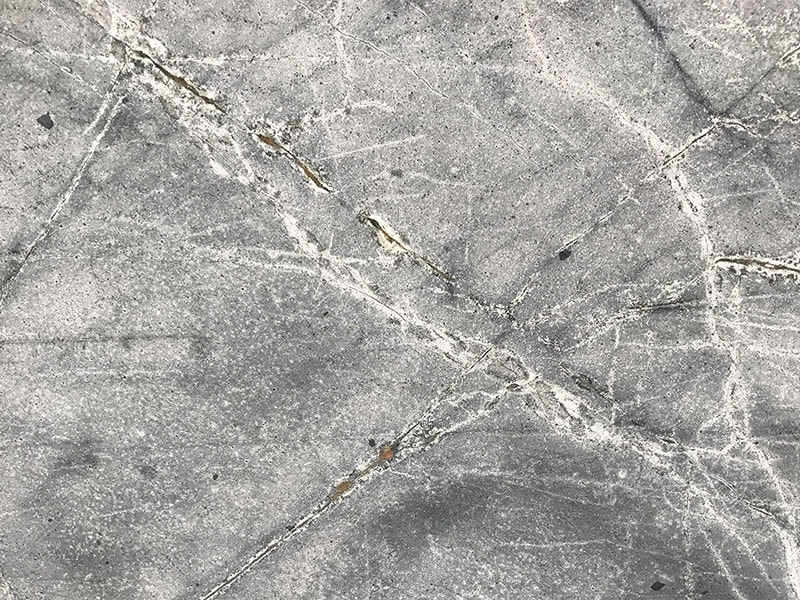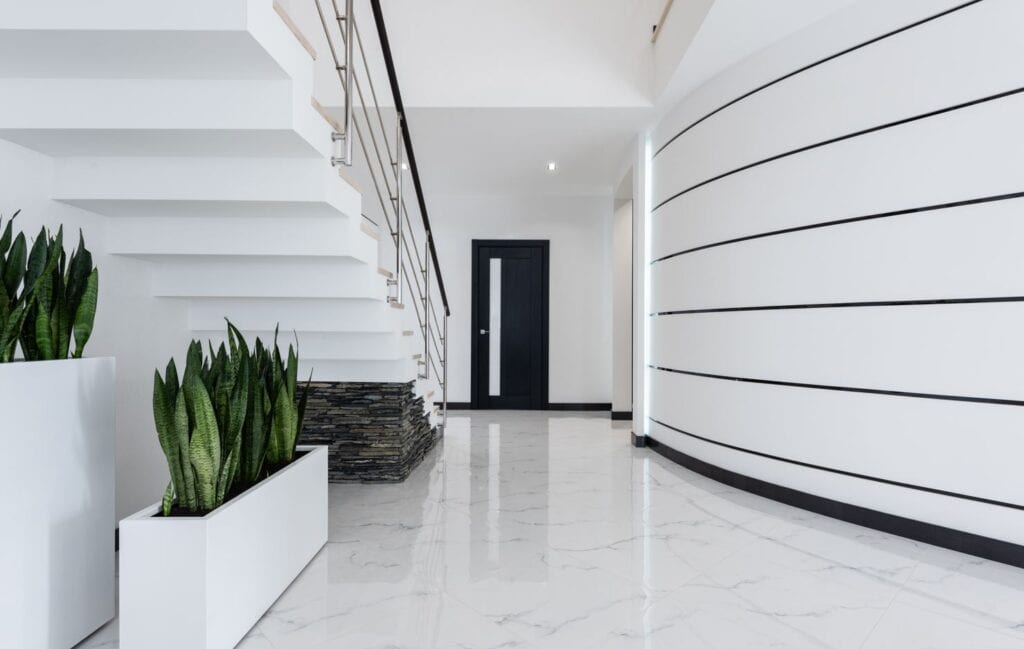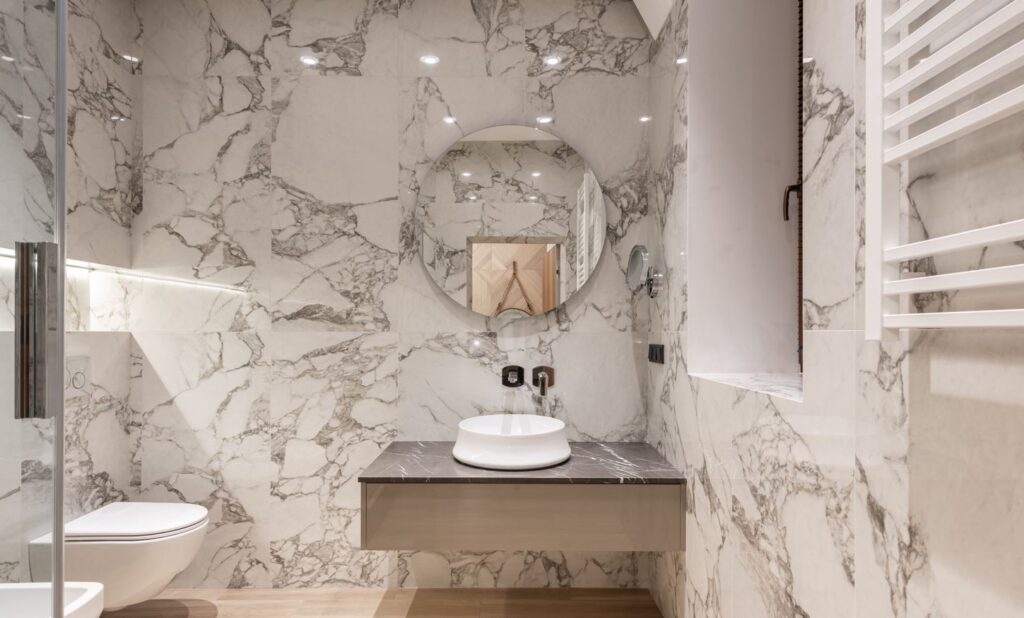Is a material that requires little upkeep and looks great on your countertops something you seek? Do you want to know the benefits and drawbacks of using quartzite for your countertops but are still on the fence about it?
The reasons for quartzite's popularity and the factors to think about before purchasing quartzite countertops will be discussed in this article. When you're done reading, you'll have a firm grasp of quartzite and its benefits and drawbacks for house countertops.
What Is Quartzite?
Over millions of years, quartz-rich sandstone has been subjected to intense heat and pressure, transforming into the metamorphic rock known as quartzite. Quartzite, which looks like marble, is considerably harder and more stain- and impact-resistant than marble.
The primary distinction between quartz and quartzite kitchen countertops is that quartz is synthetic.
Advantages and Disadvantages of Quartzite Countertops
Advantages Of Quartzite Countertops
Quartzite is a lovely natural stone, and now that we know what it is and how it is made, we can examine its many benefits.
Heat Resistant
Quartzite's high resistance to heat is to be expected, given that it was created in a high-temperature, high-pressure environment. According to certain experiments, Quartzite has been demonstrated to survive temperatures of up to 1,050 degrees Fahrenheit. However, heat resistance does not imply invulnerability to heat. In contrast to some laminate countertops, quartzite will not melt under hot cookware.
Very Durable
The longevity of quartzite countertops is a big selling point for people thinking about installing them in their newly remodelled kitchens. Quartzite is durable and resistant to daily use, making it ideal for busy family homes. Quartzite, with a hardness of 7 on the Mohs scale, is among the hardest substances on Earth.
Quartzite, in contrast to softer stones like marble, is highly resistant to damage from everyday use. If you keep up with regular maintenance, these counters will look as good as new for many years.
UV-Resistant
Quartzite is a natural rock that offers excellent resistance to ultraviolet radiation, making it a great choice for countertops in direct sunlight. Quartzite's resistance to ultraviolet radiation makes it a good choice for use in sunrooms, outdoor kitchens, and other spaces with a lot of natural light.
Low-Maintenance
Quartzite is low-maintenance and long-lasting. To keep it stain-free for as long as possible, wash it with soap and water regularly and reseal it every few years. Quartzite's natural beauty can be displayed without the constant maintenance of granite or marble, which requires polishing.
Appealing to the Eye
Quartzite's visual attractiveness matches its superior performance, making it a great choice for any area in the house. Its semi-translucent gems sparkle and shine in an alluring variety of muted tones.
Timeless Look
Quartzite countertops last for a long time and never go out of style. Countertops fabricated from a natural sandstone quartzite look well with contemporary and traditional furnishings. In contrast to other granite-look materials like concrete, plastic laminate, and solid surfaces, quartzite has a timeless elegance thanks to its modest sparkle and colour variety. 
Versatile Style
The material's adaptability to various aesthetic treatments is one of its chief advantages. Quartzite is a great choice for every kitchen or bathroom countertop. It can be processed into smooth slabs or rough-hewn tiles, allowing for a wide range of aesthetic possibilities. This natural stone comes in greys, creams, and light and dark veining, giving you many colour options.
Looks Like It Should Cost More Marble
It looks and feels like more expensive marble, which is a big selling point for many homeowners. It's a fantastic way to give your home a high-end look and feel without breaking the bank.
Disadvantages Of Quartzite Countertops
After discussing the various benefits of this aesthetically pleasing and long-lasting material, let's examine some of the drawbacks of quartzite countertops.
Authentic Porous Stone
Quartzite countertops' inherent porousness is a severe drawback. The rapid absorption of liquids means it is vulnerable to harm from acids or powerful cleaning solutions. Quartzite may be stained by acids such as those found in wine, lemon juice, and tomato sauce.
Despite its durability, quartzite requires regular sealing and scrubbing with only recommended cleaning chemicals to avoid permanent damage.
Installation Is Difficult
Quartzite counters require more expertise, patience, and precision during installation than most countertop materials. One explanation is its heaviness; it adds up to around 20 lbs. per square foot. Because quartzite is prone to cracking during installation, special care must be used. Cutting through thick, durable quartzite slabs during installation for unique countertop designs is a challenge in and of itself.
Harder To Manufacture
Quartzite countertops are more difficult to produce, which is a drawback. The additional time and money needed to make a quartzite countertop directly result from the material's complexity.
More costly than other options for kitchen countertops
Quartzite is an attractive natural stone. Therefore, it is unsurprising that it is more expensive than other countertop materials. Quartzite is more expensive than granite and laminates, although only by a small margin.
Sealing it and resealing it are both necessary.
To protect quartzite from stains and moisture, it must be sealed many times per year. Quartzite isn't the best option if you want a "set and forget" kitchen or don't want to put in the time and effort required for maintenance, although some people are prepared to do so.
The sealer is also the weak point in quartzite's resistance to heat. Quartzite is extremely heat resistant, but it will shatter if the sealer is overheated. Quartzite is easily discoloured by heat and acidic solutions once the sealer has broken.
Quartzite Doesn't Come in Near as Many Shades
Quartzite might not be your best option if you hope to find a wide range of colours. Quartzite comes in a relatively small range of colours, mostly white, off-white, and near-black. Due to the stone's natural origin, quartzite can only be found in the colours that nature provides.
More colours are available in other materials, so if that's a key priority when picking a countertop material, try looking elsewhere.
FAQs About Masonry
While experienced masons can install quartzite masonry, it is a heavy stone that may require additional structural support. Proper installation techniques are essential to ensure its long-term stability.
Quartzite is a natural stone, which makes it a more eco-friendly choice compared to synthetic materials. It doesn't release harmful chemicals or emissions.
Incorporating quartzite masonry in home design can enhance the resale value of a property. Its durability, aesthetic appeal, and timeless quality are often attractive to potential buyers.
Yes, quartzite is a popular choice for countertops in kitchens and bathrooms due to its durability and resistance to heat. However, proper sealing is recommended to prevent stains.
In areas with extreme weather, choosing a quartzite variety suitable for the climate is important. Additionally, sealing and regular maintenance can help protect quartzite masonry from the effects of freezing and thawing.
What Do I Need to Know About Cleaning Quartzite?
Like most natural stones, quartzite is best kept clean with quick and easy methods, and regular upkeep is essential. Quartzite is relatively low-maintenance, so your investment should last many years if you employ common sense and the right cleaning supplies.
Soap and water, as we've mentioned in earlier posts, are all you need to clean quartzite or any other natural stone. Quartzite countertops, like those made from natural stone, must be sealed after installation and resealed every year or two.
How Often Should You Clean Your Quartzite Countertops?
According to the industry's stone suppliers, quartzite countertops are best cleaned with nonabrasive, low-pH cleansers and a soft cloth or nonabrasive sponge. Specialised cleaners are available for natural stone, but soap and water will always do the trick if a spill is attended to quickly.
Some quartzite is different, so your salesperson may have further recommendations based on the stone's porosity and the date it was last sealed if you decide to buy a natural stone cleaner.
Is there anything I shouldn't use to scrub quartzite?
Avoid harsh chemicals like ammonia, bleach, acid, and abrasive sponges. In addition to making your quartzite countertop look dull and unpolished, these objects can also wear down the sealant, making it more susceptible to stains and etching. Quartzite is resistant to scratches, and a dropped knife shouldn't leave a mark, although it can be stained if you aren't careful.
Countertops: Quartz vs. Quartzite
We've compared the two materials to help you choose between quartz and quartzite for your kitchen or bathroom countertop.
Appearance
Given that we all have different beauty standards, it's impossible to declare whether or not one substance is more lovely than another. Quartzite usually appears in shades of white or grey. Iron oxide in the stone gives it a pink or reddish colour.
Quartzite takes on additional colours when other minerals are present, including yellow, blue, green, and orange. As a result of pressure differences during creation and the chance of inclusion of iron oxide or other minerals, quartzite always exhibits streaking, regardless of hue.
Because pigment may be added to quartz, there is a considerably wider colour palette from which to choose. The formulation of the countertop material mimics the look of genuine stones like granite and marble.
Quartzite is the best option if you care about aesthetics and want to use natural stone. Quartz is available in more colours and patterns than most other stones.
Durability and Hardness
Quartzite is even more long-lasting than granite due to its higher hardness. High temperatures do not damage it. Quartzite is extremely hard, yet quartz is also quite sturdy. Quartz countertop resin is plastic and will melt at temperatures over 300 degrees Fahrenheit because of this.
The flexibility of quartz makes it preferable to quartzite in terms of resistance to denting and chipping. Sharp items can damage both countertops, so always use a cutting board while preparing food.
Countertop Maintenance
Quartz only needs a little upkeep. Moisten a rag to clean it. In addition to being unnecessary, abrasive cleansers should never be used on quartz. Quartz countertops are preferable to quartzite due to low maintenance requirements. It's best to clean your countertop with products made specifically for it, as is the case with any other countertop.
Quartzite needs a lot more care and maintenance. It needs to be sealed before use and at least once or twice yearly. Stone that hasn't been properly sealed can absorb stains. All natural stones, including granite and marble, are susceptible to this flaw. Quartzite has low maintenance after sealing.
Conclusion
Quartzite is a metamorphic rock that has been subjected to intense heat and pressure over millions of years, turning into quartzite. This natural stone is harder and more stain- and impact-resistant than marble, making it an attractive choice for kitchen countertops.
Quartzite countertops are heat-resistant, durable, and UV-resistant, making them ideal for busy family homes. They are also low-maintenance, with regular washing and resealing to keep them stain-free. The material's visual appeal matches its superior performance, making it a great choice for any area in the house.
Quartzite countertops have a timeless look, with its modest sparkle and color variety. It can be processed into smooth slabs or rough-hewn tiles, offering a wide range of aesthetic possibilities. It looks and feels like more expensive marble, making it a great way to give your home a high-end look and feel without breaking the bank.
However, there are some drawbacks to quartzite countertops. The inherent porousness of quartzite makes it vulnerable to damage from acids or powerful cleaning solutions. Regular sealing and scrubbing with recommended cleaning chemicals are necessary to avoid permanent damage. Installation is difficult due to its heaviness, which adds up to around 20 lbs. per square foot.
Manufacturing quartzite countertops is more difficult due to its complexity. It is more expensive than granite and laminates, but it is still an attractive option for kitchen countertops. Additionally, quartzite's resistance to heat can be compromised by overheating the sealer, making it less resistant to heat and acidic solutions.
Quartzite is a natural stone with a limited range of colors, mostly white, off-white, and near-black. It is best maintained with soap and water, and should be sealed after installation and resealed every year or two. Quartzite countertops should be cleaned with nonabrasive, low-pH cleansers and a soft cloth or sponge. Specialized cleaners may be available for natural stone, but soap and water are the best options.
Hard chemicals like ammonia, bleach, acid, and abrasive sponges should not be used to scrub quartzite. Quartzite is resistant to scratches and can be stained if not careful. Quartzite is more durable and hard, with higher hardness and resistance to denting and chipping. Quartz countertops require less upkeep, such as moistening a rag and using a cutting board for food preparation.
Quartz countertops require less upkeep, but quartzite requires more care and maintenance, including sealing before use and at least once or twice yearly. It is best to use products made specifically for quartzite, as it has low maintenance after sealing.
Content Summary:
- Is a material that requires little upkeep and looks great on your countertops something you seek?
- Do you want to know the benefits and drawbacks of using quartzite for your countertops but are still on the fence about it?
- The reasons for quartzite's popularity and the factors to think about before purchasing quartzite countertops will be discussed in this article.
- When you're done reading, you'll have a firm grasp of quartzite and its benefits and drawbacks for house countertops.
- The primary distinction between quartz and quartzite kitchen countertops is that quartz is synthetic.
- Quartzite's high resistance to heat is to be expected, given that it was created in a high-temperature, high-pressure environment.
- However, heat resistance does not imply invulnerability to heat.
- Quartzite is durable and resistant to daily use, making it ideal for busy family homes.
- Quartzite, in contrast to softer stones like marble, is highly resistant to damage from everyday use.
- Quartzite is a natural rock that offers excellent resistance to ultraviolet radiation, making it a great choice for countertops in direct sunlight.
- Quartzite's visual attractiveness matches its superior performance, making it a great choice for any area in the house.
- Quartzite countertops last for a long time and never go out of style.
- Countertops fabricated from a natural sandstone quartzite look well with contemporary and traditional furnishings.
- In contrast to other granite-look materials like concrete, plastic laminate, and solid surfaces, quartzite has a timeless elegance thanks to its modest sparkle and colour variety.
- The material's adaptability to various aesthetic treatments is one of its chief advantages.
- Quartzite is a great choice for every kitchen or bathroom countertop.
- It's a fantastic way to give your home a high-end look and feel without breaking the bank.
- After discussing the various benefits of this aesthetically pleasing and long-lasting material, let's examine some of the drawbacks of quartzite countertops.
- Quartzite countertops' inherent porousness is a severe drawback.
- The rapid absorption of liquids means it is vulnerable to harm from acids or powerful cleaning solutions.
- Quartzite counters require more expertise, patience, and precision during installation than most countertop materials.
- Because quartzite is prone to cracking during installation, special care must be used.
- Sealing it and resealing it are both necessary.
- To protect quartzite from stains and moisture, it must be sealed many times per year.
- Quartzite isn't the best option if you want a "set and forget" kitchen or don't want to put in the time and effort required for maintenance, although some people are prepared to do so.
- The sealer is also the weak point in quartzite's resistance to heat.
- Quartzite is extremely heat resistant, but it will shatter if the sealer is overheated.
- Quartzite might not be your best option if you hope to find a wide range of colours.
- Quartzite comes in a relatively small range of colours, mostly white, off-white, and near-black.
- Due to the stone's natural origin, quartzite can only be found in the colours that nature provides.
- More colours are available in other materials, so if that's a key priority when picking a countertop material, try looking elsewhere.
- Like most natural stones, quartzite is best kept clean with quick and easy methods, and regular upkeep is essential.
- Quartzite is relatively low-maintenance, so your investment should last many years if you employ common sense and the right cleaning supplies.
- Soap and water, as we've mentioned in earlier posts, are all you need to clean quartzite or any other natural stone.
- Quartzite countertops, like those made from natural stone, must be sealed after installation and resealed every year or two.
- According to the industry's stone suppliers, quartzite countertops are best cleaned with nonabrasive, low-pH cleansers and a soft cloth or nonabrasive sponge.
- Specialised cleaners are available for natural stone, but soap and water will always do the trick if a spill is attended to quickly.
- We've compared the two materials to help you choose between quartz and quartzite for your kitchen or bathroom countertop.
- Quartzite usually appears in shades of white or grey.
- The formulation of the countertop material mimics the look of genuine stones like granite and marble.
- Quartzite is the best option if you care about aesthetics and want to use natural stone.
- The flexibility of quartz makes it preferable to quartzite in terms of resistance to denting and chipping.
- Quartz countertops are preferable to quartzite due to low maintenance requirements.
- It's best to clean your countertop with products made specifically for it, as is the case with any other countertop.

